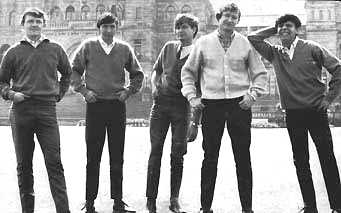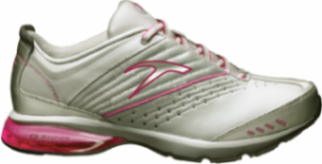Microsoft Files 23 Suits Against Alleged Counterfeiters
On June 29, Vnunet.com reported that Microsoft launched a “legal blitz” consisting of 23 lawsuits in California and Florida against alleged sellers of counterfeit software. That makes 125 such suits in Microsoft’s last fiscal year — which ended June 30 — compared with 56 during its last fiscal year.
PC World added that Microsoft filed all of the lawsuits in federal court — all on June 28.
That’s not entirely accurate, as the first complaint I found was filed in the Middle District of Florida on June 27: Microsoft Corp. v. Gunther, in which the company alleged that John D. Gunther and his company, Onyx Systems, had engaged in selling counterfeit Microsoft software.
The complaint appears to contain Microsoft’s typical counterfeiting allegations, including that Microsoft contacted defendants and followed up by purchasing counterfeit software from them. It states: “Microsoft notified Defendants by letter dated September 29, 2006 that it had received a report that Defendants had distributed illegal and/or unlicensed Microsoft software. The letter specifically informed Defendants that it violates copyright and trademark laws to distribute unauthorized copies of Microsoft software installed on the hard disk drives of computers.
“In or about January 2007, Defendants distributed to an investigator computer systems with infringing Office 2003 Pro software. Defendants also distributed counterfeit Office 2003 Pro, FrontPage 2003, Visio Pro 2003, Project Pro 2003, and One Note 2003 software.
“On information and belief, this is not an isolated incident. Rather, Defendants have been and continue to be involved in advertising, marketing, installing and/or distributing infringing copies of Microsoft software to unidentified persons or entities. On information and belief, Defendants’ distributions of Microsoft software are the result of Defendants’ advertising and marketing the availability of such materials.”
The Gunther defendants have not yet answered Microsoft’s complaint. However, an Associated Press story quotes another Florida defendant who denies Microsoft’s allegations. “Never in my life have they been in touch,” said Gustavo Ibanez, owner of PC Touch in Miami. The AP reports Mr. Ibanez said he sells computers with the appropriate Microsoft codes on them and that he has invoices for all of the subject software.
This denial notwithstanding, it will be interesting to see a few months from now how many of these 23 suits Microsoft has reduced to default judgment.
Thanks to Chicago IP Litigation blogger David Donoghue for bringing this story to my attention.
Can a Restaurant Protect Its Decor? Its Recipes? Bob Cumbow Tells All
Yesterday, The New York Times reported on a lawsuit one restaurant owner instituted against another for copying “each and every element” of her restaurant, including “the white marble bar, the gray paint on the wainscoting, the chairs and bar stools with their wheat-straw backs, the packets of oyster crackers placed at each table setting and the dressing on the Caesar salad.”
 The Times goes on to quote celebrity chef Tom Colicchio of “Top Chef” fame (pictured right), who expressed frustration over his perceived inability to stop a sandwich shop from cloning his “Witchcraft” restaurants: “There’s nothing you can do,” he said. “You can’t protect recipes, you can’t protect what a place looks like, it’s impossible.”
The Times goes on to quote celebrity chef Tom Colicchio of “Top Chef” fame (pictured right), who expressed frustration over his perceived inability to stop a sandwich shop from cloning his “Witchcraft” restaurants: “There’s nothing you can do,” he said. “You can’t protect recipes, you can’t protect what a place looks like, it’s impossible.”
Unless you know a trademark lawyer, that is. Here is my partner Bob Cumbow’s (pictured bottom right) take on the issue:
“As I read the story, three issues are raised, one with an easy answer, two others not so.
 “1. One of the persons asks, How can you protect the way a place looks? He’s obviously unfamiliar with Two Pesos v. Taco Cabana, in which the U.S. Supreme Court confirmed that trade dress applies to restaurant decor and that it can be protectable even without secondary meaning, as long as it is shown to be inherently distinctive — which is the challenge facing the plaintiff in this case.
“1. One of the persons asks, How can you protect the way a place looks? He’s obviously unfamiliar with Two Pesos v. Taco Cabana, in which the U.S. Supreme Court confirmed that trade dress applies to restaurant decor and that it can be protectable even without secondary meaning, as long as it is shown to be inherently distinctive — which is the challenge facing the plaintiff in this case.
“2. Are recipes and menus protectable? Under copyright law, probably not, except to the extent that they embody original expression. Also, a list of items, each unprotectable alone, may be protected as an original selection and arrangement under Feist v. Rural Telephone — but with respect to an oyster house menu this would be a very ‘thin’ copyright, since the offerings of restaurants within such a narrow niche are likely to be substantially similar from one restaurant to another, and protecting one party’s menu from another party’s even near-identical menu could be the first step on a ‘slippery slope’ of granting one restaurateur exclusive rights in something that its competitors ought to be allowed to do.
“3. Can recipes and menus be included as part of a restaurant’s overall trade dress? Probably not, because they are almost certainly functional. But this is a novel argument that may seek to expand the notion of ‘tertium quid’ trade dress to include menu offerings as part of the overall ‘look and feel’ of a restaurant. I’d be surprised if it were successful — but I’ve been surprised before.”
Great analysis, Bob. Thanks for sharing!
The case cite is Powerful Katinka, Inc. v. McFarland, 07-6036 (S.D.N.Y).
Photo credits: Bravo TV and Graham & Dunn PC
Seattle Band Name Dispute: The Wailers (Washington) vs. The Wailers (Jamaica)
We have a juicy-sounding band name dispute right here in Seattle: members of the historic Washington band called “The Wailers” brought suit in the Western District June 20 against Bob Marley’s historic band of the same name. The complaint states that plaintiffs John M. “Buck” Ormsby and Kent E. Morrill have been performing as “The Wailers” (Washington) since 1959. Plaintiffs allege they obtained federal registrations for the WAILERS service mark in January 2003, which they say Aston “Family Man” Barrett and the other members of “The Wailers” (Jamaica) have infringed and diluted.
According to the complaint: “The Wailers have influenced the musical careers of bands such as The Beatles, Jimi Hendrix, The Sonics, the Rolling Stones, and Paul Revere and The Raiders. Most notably, The Wailers’ performance of the song ‘Louie Louie’ inspired The Kingsmen of Portland Oregon to record the same song.”

The Wailers (Washington) in 1960s
Photo credit: Pacific Northwest Bands
The complaint states defendants’ original group was formed in Jamaica in 1963 by Bob Marley, Peter Tosh, and Bunny Wailer. It alleges: “On or about 1974, the original group broke up, and Defendant Barrett and Bob Marley formed the musical group Bob Marley and the Wailers. Following the death of Bob Marley in 1981, The Wailers, including defendant Barrett, continued to stage live musical performances as a group, initially as The Bob Marley Wailers, and eventually simply The Wailers. This musical group has continued to stage live musical performances as The Wailers to the present day.”

The Wailers (Jamaica)
“The Wailers” (Washington) claim “The Wailers” (Jamaica)’s use of the same mark is likely to cause confusion and to dilute plaintiffs’ famous mark. “The Wailers” (Washington) also claim “The Wailers” (Jamaica) have wrongfully obtained the registration for wailers.com and have used the domain name to market, promote, and sell the entertainment services of “The Wailers” (Jamaica), causing confusion in the industry and among the general public.
“The Wailers” (Jamaica) have not yet answered the complaint.
The case cite is Ormsby v. Barrett, No. 07-5305 (W.D. Wash.)
Cafes Settle Dispute Over MOONRAY Name and Mark
The Seattle Times reported June 23 that the Portland, Ore.-based Moonstruck Chocolate Co. and Duvall, Wash.-based Moonray Espresso Corp. have settled their dispute over the trademark MOONRAY. Terms of the settlement are confidential, but the Times reports the suburban Seattle cafe will change its name. It states the owner, Mike Snow, recently took down his Web site at www.moonrayespresso.com and temporarily closed the cafe’s doors to decide his next step.
 The case was widely reported in the Northwest press. STL discussed the case here, here, and here.
The case was widely reported in the Northwest press. STL discussed the case here, here, and here.
By way of disclosure, STL’s publisher represented Moonray in the litigation.
The case cite is Moonstruck Chocolate Co. v. Moonray Espresso Corp., No. 07-0091 (W.D. Wash.).
Brooks and Nike Settle Suit over TAILWIND Shoe Logo
On June 19, Brooks Sports, Inc., filed a Notice of Dismissal voluntarily dismissing the infringement and unfair competition claims it filed in the Western District last month against Payless Shoesource, Inc., Exeter Brands Group, LLC, and Nike, Inc. Brooks had alleged that defendants’ TAILWIND shoe logo was confusingly similar with Brooks’ shoe logo. STL blogged about the suit here.
The Olympian newspaper from Olympia, Washington, reports: “The terms of the settlement are confidential. But Nike spokesman Vada Manger said the company will use a revised logo for its Tailwind products going forward.”
Here are the original shoes in question:
Before Settlement: Tailwind (top) and Brooks running shoes
(photo credit: OregonLive.com/The Oregonian)
The Oregonian’s blog, Playbooks & Profits, reports that after the settlement, defendants’ TAILWIND logo will look like this:

After Settlement: Tailwind’s new look
(photo credit: OregonLive.com/The Oregonian)
As Playbooks & Profits put it, the “Only ones who might sue over this one might be an ice-axe manufacturer.” Of course, trademark practitioners could pick that comment apart but it’s pretty amusing so I’ll leave it alone.
The case cite is Brooks Sports, Inc. v. Payless Shoesource, Inc., No. 07-0695 (W.D. Wash).